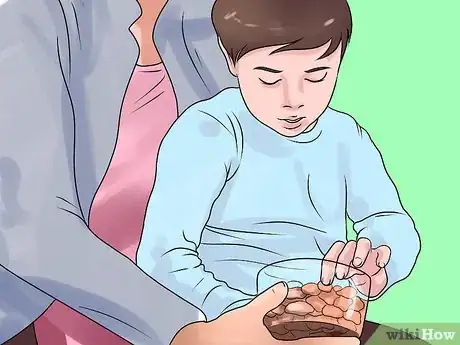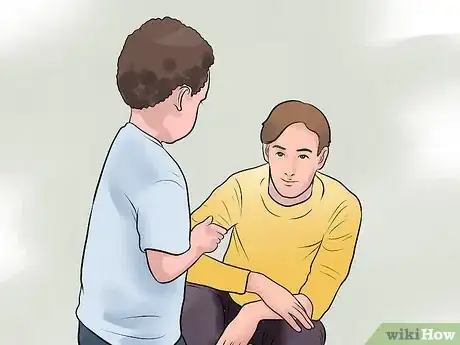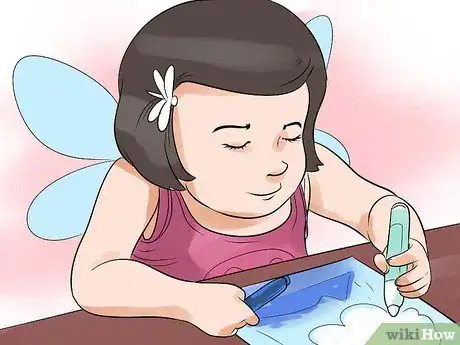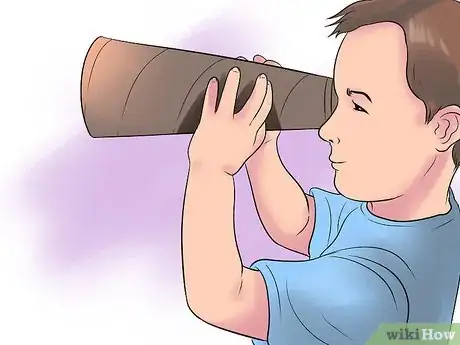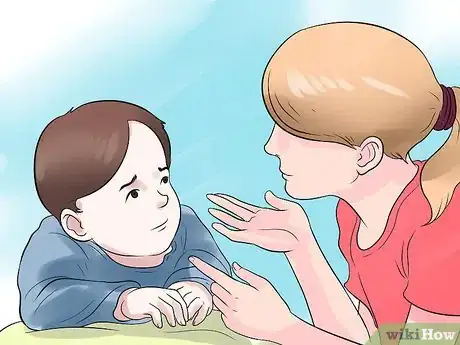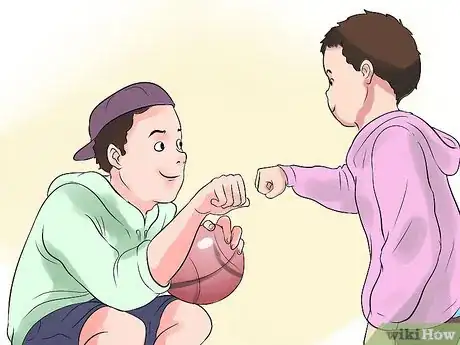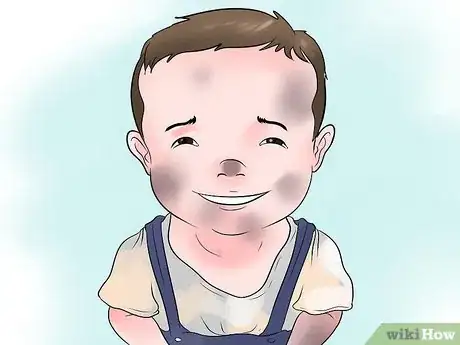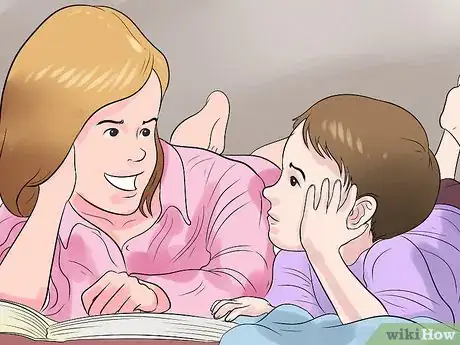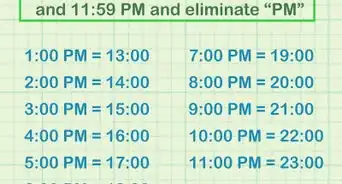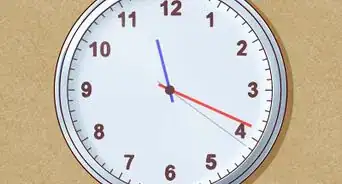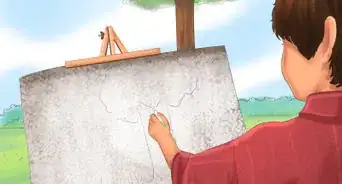This article was co-authored by Jennifer McVey, Cht. Jennifer McVey is a Spiritualist, Seer, and the Spiritual Director of Spiritual Answers and Solutions. With more than 22 years of experience, she specializes in manifesting, ghosts and spirit attachments, hypnotherapy, channeling, and spiritually based life coaching. Jennifer has also published 13 Affirmation Image and six Word Search Puzzle books in spirituality and self-help and has produced over 600 audio sessions.
wikiHow marks an article as reader-approved once it receives enough positive feedback. In this case, several readers have written to tell us that this article was helpful to them, earning it our reader-approved status.
This article has been viewed 85,671 times.
A child's creativity starts with their method of thinking and problem solving. Daily challenges to expand their reasoning and understanding of the world, along with an encouraging environment, can help a child become more confident of their views and opinions. In this article, we'll share a number of ideas and activities that can help you boost and support the development of your child's creativity.
Steps
-
1Allow for your child to make simple choices, such as what to eat for dinner or where to go on a weekend. This encourages them to think independently, exercising an important aspect of creativity.
-
2Encourage independence from caregivers and media. A child that is constantly entertained by others or the television will struggle to find things to do on their own without access to media.Advertisement
-
3Provide items in your child's environment to stimulate their imagination. Drawing supplies, blocks, books, and random craft supplies can all contribute to elaborate dramatic play schemes.
-
4Brainstorm different uses for items with your child. For example, a cardboard tube can be a telescope, tower, or person. Validate all of your child's ideas, praising him or her for such an impressive imagination.
-
5Ask your child open-ended questions to stretch their understanding and help them to postulate ideas.
- Ask your child "what if" questions. "What if people could fly?" "What if people lived in space?" "What if dolphins walked on land?"
- Involve your child in figuring out ways to make an improvement upon something. "How can we clean up the living room faster?" "How could we get water to the flowers without spilling any?" "What could we do to make the ball bounce higher?"
- Being read a book is an excellent opportunity for a child to exercise their creativity. Ask your child what could happen next, or how a character feels (and why).
-
6Play with your child. Work together to establish dramatic play scenarios, using substitute items for props when needed. Pretend play allows for children to imagine life from a different perspective, an important building block of creativity.
-
7Be prepared for "messy play." While it may seem that your child is playing in the mud simply to make more work for you, in fact there is a great deal that is learned by playing with such things. When they are finished playing, make it a rule that they have to help clean up. If faced with the choice of getting messy then cleaning it up and not getting messy at all, almost all children will choose the former option.
-
8Engage in story telling. Start a story and take turns building upon it. Follow your child's lead in what the mood of the story should be. Expect most stories to be more on the silly, impossible side. Since this is just a story, no idea is too far-fetched.
Expert Q&A
-
QuestionHow do you improve a child's creative writing skills?
 Jennifer McVey, ChtJennifer McVey is a Spiritualist, Seer, and the Spiritual Director of Spiritual Answers and Solutions. With more than 22 years of experience, she specializes in manifesting, ghosts and spirit attachments, hypnotherapy, channeling, and spiritually based life coaching. Jennifer has also published 13 Affirmation Image and six Word Search Puzzle books in spirituality and self-help and has produced over 600 audio sessions.
Jennifer McVey, ChtJennifer McVey is a Spiritualist, Seer, and the Spiritual Director of Spiritual Answers and Solutions. With more than 22 years of experience, she specializes in manifesting, ghosts and spirit attachments, hypnotherapy, channeling, and spiritually based life coaching. Jennifer has also published 13 Affirmation Image and six Word Search Puzzle books in spirituality and self-help and has produced over 600 audio sessions.
Spiritual Director Let them write whatever they want to write! Let them be as fantastical as they'd like, and give them the time to be creative. Allow them to express their ideas anyway they want, whether they're picturing things, hearing things, or sensing things. Positive reinforcement is also important—be sure to talk to the child and remind them that they're creative and that they're doing great.
Let them write whatever they want to write! Let them be as fantastical as they'd like, and give them the time to be creative. Allow them to express their ideas anyway they want, whether they're picturing things, hearing things, or sensing things. Positive reinforcement is also important—be sure to talk to the child and remind them that they're creative and that they're doing great. -
QuestionHow do children demonstrate creativity?
 Community AnswerChildren will draw, make things, use clay, and will imagine a whole array of things.
Community AnswerChildren will draw, make things, use clay, and will imagine a whole array of things.
Expert Interview

Thanks for reading our article! If you'd like to learn more about improving child's creative skills, check out our in-depth interview with Jennifer McVey, Cht.
